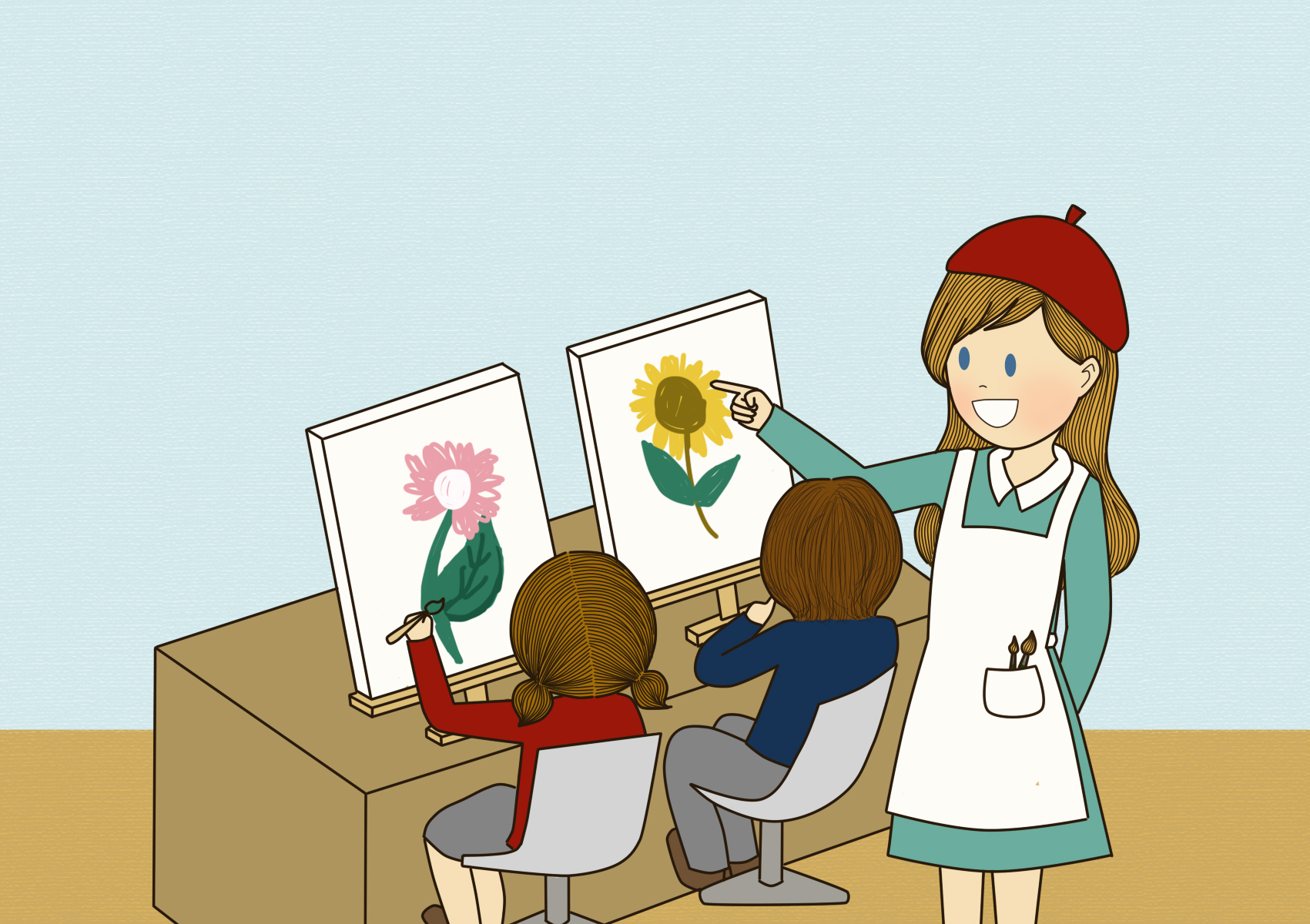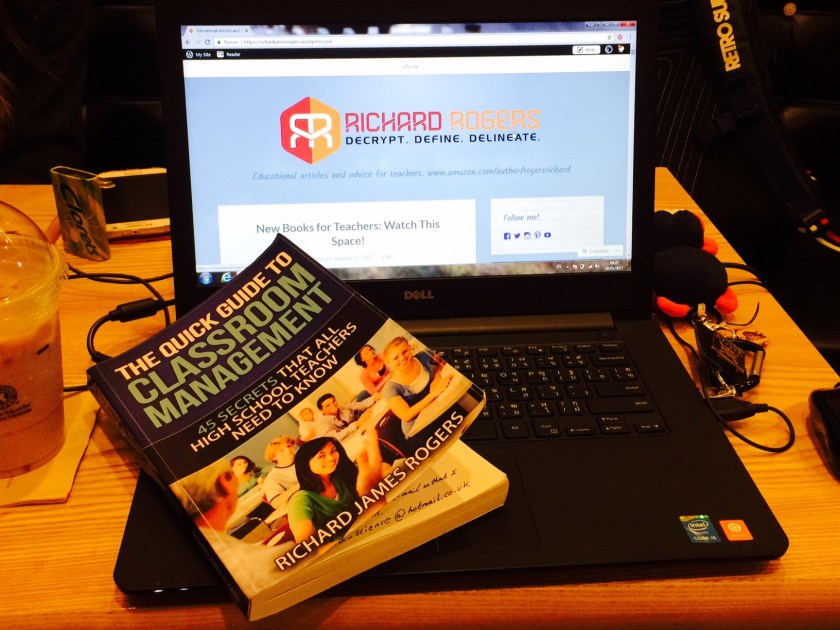An article by Richard James Rogers (Author of The Quick Guide to Classroom Management)
Illustrated by Pop Sutthiya Lertyongphati
As an 11-year-old boy I was interested in two main things: sweets and toys (especially toy soldiers, model cars and wrestler figurines).
Then the day of the ‘video’ came. A large TV was wheeled into class and the school nurse and class teacher looked on as a group of kids giggled at the animations in the ‘Growing Up’ documentary.
I knew it was coming, and so did my parents – they had to sign a consent form beforehand.
Did I really need to be taught that at 11-years-old? For me, personally, I don’t think so. It was little too early.
The news
As I was scrolling through the BBC News’ Family and Education section looking for interesting articles to tweet, I came across this top story:

You can read the full article here.
After reading the article my conclusion is this: Children in England of 15-years-old and above will be soon be allowed to opt in for sex education classes, even if their parents wish to withdraw them.
Currently, parents have the right to withdraw students from sex education classes up to the age of 18.
The article makes the legitimate point that any child who does not receive sex ed before the age of 16 will effectively have reached the age of consent without knowing what sex is, and what the consequences of sex could be. There are also concerns that modern sex education covers topics such as mental health and LGBT issues, which some lawmakers and ministers feel are such important topics that parents should have no say in whether or not their kids learn about them.
I tend to disagree, strongly.
Culturally and religiously inappropriate
In many cultures, sex education is simply not taught to kids at the age at which we in the U.K. would deem it appropriate. Here are some facts which I’ve pulled from research done by studyinternational.com
- Belgium: Sex education begins at the age of 7 in some schools, although the approach to sex ed is rather relaxed and no national strategy or system is really in place.
- China: Mostly absent, although Do-It-Yourself STI testing kits are readily available. Sex education is primarily the responsibility of parents, not schools.
- India: Sex education is not compulsory, but good programs are in place that are aimed at 12-20 year-olds
- Indonesia: Again, sex education is not compulsory but big changes are happening across the country to modernize Indonesia’s provision.
- New Zealand: As a compulsory subject, sexual education is taught through a rigorous national curriculum from Year 7 to Year 13. However, concerns have been raised about New Zealand’s STI levels, and moves are being made to modernise and improve the programme.
As we can see for this small sample, people of differing cultures have completely different views on when and how sex ed should be taught. We also see that despite comprehensive sex ed courses being provided to schoolchildren in countries like the U.K., New Zealand and America, the effects seem to be mixed:
- In New Zealand, teenage pregnancies and birth rates are falling (is that a good thing?), but STIs such as syphilis are on the increase
- In the U.K., despite sex education being written into law with the The Education Act of 1996 (which states that sex education should inform pupils “about STIs and HIV and encourage pupils to have due regard to moral considerations and family life”), syphilis infections are the highest they have been in 70 years.
- The American situation is just as dire, with the CDC reporting that in 2016 gonorrhea, syphilis and chlamydia infections were at an all-time high. Sex education has been a public health priority for American governments for four decades but methods of implementation vary by states, districts and school boards.
One could argue that sex ed in schools simply doesn’t work. In fact, that was almost the exact conclusion of a massive 2016 Cochrane Infectious Diseases Review of studies into sex ed. The review states that:
There is little evidence that educational curriculum-based programmes alone are effective in improving sexual and reproductive health outcomes for adolescents.
Removing parents from the ‘system’?
Some people would argue that a pattern seems to be emerging (albeit slowly): the systematic removal of parents from involvement in their child’s education.
Let’s take a look at a quick summary of some developments in the U.K.:
- Whilst homeschooling is allowed in the U.K., the headteacher of a pupil’s assigned school must be notified. A local council representative may come to inspect, and if he or she provides a negative appraisal of the situation then the pupil may be required to attend full-time school. School Attendance Orders were introduced in 1996 and basically allow for the government to fine and prosecute parents if their children do not receive a suitable full-time education from at any point between the ages of 5 and 16.
- Children between the ages of 13 and 16 have the same medical confidentiality rights as adults, which means that doctors and teachers are not required to inform parents in the case of an abortion or sexual activity.
- If parents are homeschooling their children, then they do not need to follow the curriculum. However, they must make sure their child is educated suitably for their age and ability and for any special educational needs they may have.
Conclusion
Sexual education doesn’t seem to be working effectively, as STIs continue to rise globally (even in those countries where sex ed is comprehensive and implemented through a national strategy). This concerning, and more research needs to be done to ascertain feasible solutions.
Parents should be encouraged to get more involved in the sexual education of their children. Parents should always be given the choice to consent to school-based sex education for their children. The religious and cultural beliefs of the family unit should be respected.







I’ve been talking about the systematic removal of parents’ responsibilities and rights when it comes to raising their children. That job has been farmed out to the ‘professionals.’ Teachers are the main ones taking over that role. And if parents aren’t complaining or noticing, it’s because they’re too busy at their jobs.
This is a very good point that you make. In addition to this ‘delegated responsibility’, there also seems to be a growing trend of parents allowing mobile devices to take over their childrens’ lives. It’s not uncommon for me to see whole families on public transport engrossed with their phones or tablets – mum, dad and kids. Is this a good thing, a necessary step forward or a step backwards? Much needs to considered here I think.